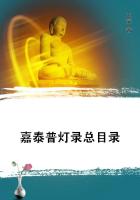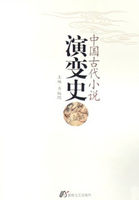There is but a single exception to this rule,--that of the proprietor, who, producing by his right of increase, is not associated with any one, and consequently is not obliged to share his product with any one; just as no one else is bound to share with him.With the exception of the proprietor, we labor for each other; we can do nothing by ourselves unaided by others, and we continually exchange products and services with each other.
If these are not social acts, what are they?
Now, neither a commercial, nor an industrial, nor an agricultural association can be conceived of in the absence of equality;equality is its sine qua non.So that, in all matters which concern this association, to violate society is to violate justice and equality.Apply this principle to humanity at large.
After what has been said, I assume that the reader has sufficient insight to enable him to dispense with any aid of mine.
By this principle, the man who takes possession of a field, and says, "This field is mine," will not be unjust so long as every one else has an equal right of possession; nor will he be unjust, if, wishing to change his location, he exchanges this field for an equivalent.But if, putting another in his place, he says to him, "Work for me while I rest," he then becomes unjust, unassociated, UNEQUAL.He is a proprietor.
Reciprocally, the sluggard, or the rake, who, without performing any social task, enjoys like others--and often more than others--the products of society, should be proceeded against as a thief and a parasite.We owe it to ourselves to give him nothing; but, since he must live, to put him under supervision, and compel him to labor.
Sociability is the attraction felt by sentient beings for each other.Justice is this same attraction, accompanied by thought and knowledge.But under what general concept, in what category of the understanding, is justice placed? In the category of equal quantities.Hence, the ancient definition of justice--_Justum aequale est, injustum inaequale_.What is it, then, to practise justice? It is to give equal wealth to each, on condition of equal labor.It is to act socially.Our selfishness may complain; there is no escape from evidence and necessity.
What is the right of occupancy? It is a natural method of dividing the earth, by reducing each laborer's share as fast as new laborers present themselves.This right disappears if the public interest requires it; which, being the social interest, is also that of the occupant.
What is the right of labor? It is the right to obtain one's share of wealth by fulfilling the required conditions.It is the right of society, the right of equality.
Justice, which is the product of the combination of an idea and an instinct, manifests itself in man as soon as he is capable of feeling, and of forming ideas.Consequently, it has been regarded as an innate and original sentiment; but this opinion is logically and chronologically false.But justice, by its composition hybrid--if I may use the term,--justice, born of emotion and intellect combined, seems to me one of the strongest proofs of the unity and simplicity of the ego; the organism being no more capable of producing such a mixture by itself, than are the combined senses of hearing and sight of forming a binary sense, half auditory and half visual.
This double nature of justice gives us the definitive basis of all the demonstrations in Chapters II., III., and IV.On the one hand, the idea of JUSTICE being identical with that of society, and society necessarily implying equality, equality must underlie all the sophisms invented in defence of property; for, since property can be defended only as a just and social institution, and property being inequality, in order to prove that property is in harmony with society, it must be shown that injustice is justice, and that inequality is equality,--a contradiction in terms.On the other hand, since the idea of equality--the second element of justice--has its source in the mathematical proportions of things; and since property, or the unequal distribution of wealth among laborers, destroys the necessary balance between labor, production, and consumption,--property must be impossible.
All men, then, are associated; all are entitled to the same justice; all are equal.Does it follow that the preferences of love and friendship are unjust?
This requires explanation.I have already supposed the case of a man in peril, I being in a position to help him.Now, I suppose myself appealed to at the same time by two men exposed to danger.
Am I not allowed--am I not commanded even--to rush first to the aid of him who is endeared to me by ties of blood, friendship, acquaintance, or esteem, at the risk of leaving the other to perish? Yes.And why? Because within universal society there exist for each of us as many special societies as there are individuals; and we are bound, by the principle of sociability itself, to fulfil the obligations which these impose upon us, according to the intimacy of our relations with them.Therefore we must give our father, mother, children, friends, relatives, &c., the preference over all others.But in what consists this preference?















